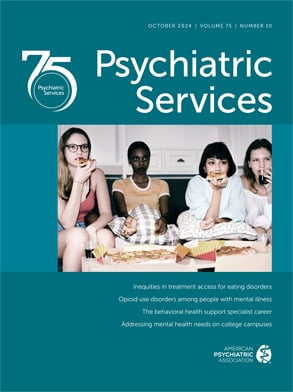For many people with mental illness, living in the community has not translated into acceptance and integration. People affected by mental illness face more than the challenges presented by the illness itself. Outright discrimination in work and housing create additional barriers to a fulfilling life, as do stigmatizing attitudes, held not only by nameless strangers, but also by friends, family, and health care providers. Each of the books reviewed here provides the reader with a better understanding of how pervasive these problems are and the depth of their impact. These authors help the reader do more than simply become more aware of the problem of stigma; they provide examples, on large and small scales, of successful antistigma efforts that the reader can learn from and even replicate.
Graham Thornicroft, a recognized leader in mental health services research with a commitment to reducing stigma, wrote the powerful, practical book Shunned that enumerates the ways in which discrimination touches most aspects of daily life for those with mental illness. In this work, we see the ways that stigmatizing attitudes are harmful in their own right. We also read examples of how these attitudes translate into outright discrimination: by family and friends, by health care providers, by significant others, by employers and coworkers, by housing authorities, by the media, and more. Thornicroft includes chapters describing the experience of discrimination in each of these aspects of life and a discussion of self-stigmatization and anticipated discrimination. Each chapter includes a review of the relevant literature, complemented by the author's own observations gleaned from his professional experience.
Thornicroft's book, already thoughtful and well written, becomes even more compelling because he illustrates his arguments with numerous first-person accounts provided by people with mental illness and their families. These passages provide a vibrant look at how deeply discrimination can touch a person's life. The book concludes by suggesting specific ways that the reader can take action to reduce discrimination and gives specific examples of local and national interventions.
For people interested in understanding the pervasiveness of discrimination, this book provides a detailed analysis of this problem and its far-reaching impact on the lives of many. It is likely to appeal to a broad audience, including health care providers, those with mental illness and their families, and people generally interested in social justice.
Authors Julian Leff and Richard Warner write from their own experience working within the health care systems of the United States and United Kingdom. They note that both systems, similar to many other systems throughout the world, have evolved so that more people with mental illness live in the community. They introduce their book, Social Inclusion of People With Mental Illness, by noting that the physical move from residing in the hospital to residing in the community has not, generally, brought with it full acceptance by the community.
This book seeks to examine the barriers to social inclusion and to introduce some examples of successful innovative solutions to this problem. The first section of the book examines social inclusion and comments on the experiences of poverty, public perception, and self-stigmatization. The second part focuses on occupational inclusion specifically, with the proposal that work is a particularly important measure of recovery. This section includes information on the variety of models for work programs and their relative advantages and disadvantages, a chapter on innovative approaches to employment options for those with mental illness, and a discussion of the economic obstacles to working—such as loss of entitlement money if a certain income is earned.
This concise book will most likely appeal to people interested in learning about how services for those with mental illness could be better designed to encourage full integration into societal life. Readers who are more generally interested in caring for those with serious mental illness or in reducing stigma would also find this book helpful.
In 1996, the World Psychiatric Association undertook a campaign to fight the stigma and discrimination associated with schizophrenia, noting that stigma is the main obstacle to improved mental health care and quality of life for people with mental illness. Consumer groups and psychiatrists collaborated to design this campaign, entitled "Open the Doors," which has since been implemented in 20 countries. Reducing the Stigma of Mental Illness, authored by two of the individuals actively involved in this campaign, describes in some detail the process involved in developing the program as well as country-by-country reports of the experience of implementing this program and the results of the interventions.
The book begins by describing the early reflections and planning for this campaign. The World Psychiatric Association felt that antistigma campaigns would be most successful if they were locally based, yet they were aware that local leaders would have little experience with such efforts. They therefore drafted a guide for implementing an antistigma program, which provides step-by-step advice guiding the group through setting up a local group, collecting information, designing a locally relevant program with a carefully selected target audience, as well as implementing and evaluating the program. The remainder of the book gives brief summaries of the specific interventions from each of the 20 countries, contact information for the action group in that country, and a brief bibliography of references relevant to the particular interventions discussed.
For any person looking to learn more about the international experience of fighting stigma, this book provides a brief overview of efforts in a variety of cultures. Potential readers should note that this book is written in the style of a report, with brief, structured chapters and little prose linking one report to the next. The authors included the "Guidelines for Program Implementation" in the report's appendix. These guidelines, in combination with the many thought-provoking, successful campaigns described in the book, could certainly provide the tools necessary to set the right group off in the direction of starting its own campaign.

